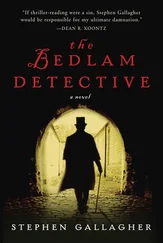I ran a hand through my sweaty hair. I’d been growing it out some, pushing the regulation length. My helmet and rifle lay near the front door. A pair of Persian carpets covered much of the main room with red diamonds and purple snowflakes. I returned to my plastic chair on the carpets, facing her. Every Iraqi man I’d met with had insisted on sitting on the ground for tradition. Rana said they just enjoyed messing with foreigners. She rose, gliding like a specter to the window, her dress concealing her feet and long black hair falling behind her.
“It’s kind of your soldiers to play with Ahmed and Karim,” she said. Her English was no longer clipped by breaks between syllables, improving with every conversation. “They get lonely.”
The other homes in the hamlet were abandoned and had been since the sectarian wars of 2006. Rana’s husband, an older cousin so infatuated with her that he hadn’t minded marrying the disgraced ex-lover of an American, maintained the other buildings in case any displaced al-Badris returned to the area. His name was Malek. I hadn’t met him, nor did I wish to.
Rana moved to the kitchen counter, a thin piece of granite on the other side of the room. My eyes followed, and my nostrils filled with her perfume, a curiously muggy scent that reminded me of swamp blossoms.
“Still no chai?” she asked. “Or food? Most Arabs don’t follow the rules of Ramadan, you know. Just the crazy ones.”
My stomach growled from days of inattention, but I shook my head. Another meal of cold leftovers awaited after sundown.
She brewed her tea differently from Saif, with more familiarity and less care. She scoffed when I’d said not to use distilled water, and had been more interested in the cost of his electric kettle than dismissive of it. She began boiling water and looked up, catching my eyes before they could dart away.
“Tell me again,” she said. “About finding him.”
“Nothing more to tell.” I’d grown weary of the topic. “Haitham told us where to dig. We dug. We found the skeleton and sent it home.”
“To Texas,” she corrected.
“To Texas.”
“But how do you know it was him?” I marveled at the control in her voice, as if we were still discussing the weather. “Because of tests in a lab?”
“Yeah,” I said. Then I tapped at a bottom tooth. “And this was missing.”
A whimper escaped her throat, and she bent against the countertop like a broken vane. I stood, ready to do something, anything, but clueless as to what. Then the kettle whistled. I blinked and Rana was upright, pouring water into a pot. She let the green mint leaves soak and resumed her seat. At her gesturing, I did the same.
Had I imagined her moment of anguish? I wasn’t sure.
“I remember the day he did that,” she said. It took me a moment to realize she was talking about Shaba’s tooth. “Some of our guards were playing tetherball and asked Elijah to join. He was so bad, but tried so hard. There was a lot of blood. It took many towels to clean his face.”
“You must miss him a lot,” I said.
She shook her head. “It was a long time ago.”
Rana went to swirl the teapot. When she returned, she asked about California. I told her I hadn’t appreciated it growing up, but missed it now: the sand, the ocean. Impressing her mattered more than the truth. Her eyes seemed to light up at the mention of the beach. I started to tell her I’d take her someday, if she wanted, but coughed instead. That wasn’t possible. I turned toward the window, where the rain was being replaced by drips of sunlight. There were shouts and the sound of a soccer ball being kicked around. I didn’t need to look out to know that Washington and the jundi s were playing with the kids.
“You sure they won’t say anything?” I asked. “We don’t want to get anyone in trouble. I know you’re taking a huge risk talking to us. To me.”
“Who is there to tell?” A caustic sound slipped out of her, something between a groan and a laugh. She had a point. We hadn’t come across anyone else living in the area. “And they have fun playing with the soldiers,” she continued. “They understand for that to continue, their father doesn’t need to know.”
“At least let me pay for information,” I said. “It’s been good. Found ten rockets at the canal yesterday.”
She waved away my offer. “Just talk I hear. Glad it helps.”
She moved to the kitchen counter again to pour herself a glass of chai. Impulsively, she started running in place, bouncing on her toes and lightly punching at the air, her sandals slapping against the floor. She stopped midstride and laughed at herself. “I can’t believe I did that with you here,” she said. “You must think I’m strange.”
“Not at all,” I said, though I did, a bit. “A workout?”
“Tae Bo? My cousin had videos of a black man who did this.” It took everything in the world right then for me not to laugh; apparently the nineties weren’t yet dead. “When you’re alone too much, these things happen. And exercise is important, I want to stay— petit ?”
“Pe-tite.”
“ Pe-tite .” She returned to her chair and smiled, her blocky, stained teeth reminding me of where we were.
Her chai was lighter than Saif’s, more beige than wheat gold, and watered down. While the drink cooled, she nibbled on a plate of goat cheese and crackers. I asked about her family.
“My family,” she said.
I nodded. “I’ve told you about mine.”
“It’s boring,” she said. “But all right.” Before I could tell her that I knew that wasn’t true, she began talking, her raspy voice leaving little space for interjection.
“My parents married when my mother was fourteen. He was much older. They were cousins. Most women would’ve been happy to marry the future sheik of the al-Badri tribe. He promised a good life. But she wanted more than that. She wanted someone to make her laugh, someone to recite poetry to make her cry. My father was a good sheik. But good sheiks don’t do things like that.
“She gave birth to six children, but Karim and I were the only ones to survive the first year. So we were close. The three of us, at least. My father was always away, working. We rarely saw him. He was a figure, a shadow we feared.”
“What was he like on the arch?” I asked. “Stern? Omniscient?”
She knocked at her forehead again. “Om-niss-ent?”
“Someone who knows everything.”
“No, not at all! They only called him the Cleric after he died. Here, people become perfect after death. Especially old men. Especially old men like my father.”
I laughed while she sipped her chai, a coy shine on her face. I asked about her brother.
“Karim was four years older. My protector, he thought. Especially after our mother died. I think that’s the reason…” She trailed off. “He never stopped thinking of himself that way.”
“What else?” I said.
“He cared too much. Like Elijah.”
She continued about her childhood, about how her mother had been a religious woman but had kept her and Karim away from the mosque, because children of a sheik weren’t supposed to mingle with townspeople. Geography had been her favorite subject as a girl, because of the maps. And though it was embarrassing to admit now, she’d had a crush on one of Saddam’s sons for the longest time. It was all fine background, but not why I was there. I wanted her to get to the point. There’s the past we wish defined us, I thought, and there’s the past that actually does.
She was talking about her mother insisting she learn the oud. “What about Rios?” I interrupted. “Elijah, I mean.”
She looked up from the carpet and tilted her head. “Almost there, Lieutenant Porter. It was at those music lessons that we met.”
Читать дальше




![Ally Carter - [Gallagher Girls 02 ] - Cross My Heart & Hope To Spy](/books/262178/ally-carter-gallagher-girls-02-thumb.webp)
![Ally Carter - [Gallagher Girls 01] I'd Tell You I Love You But Then I'd Have to Kill You](/books/262179/ally-carter-gallagher-girls-01-i-d-tell-you-i-lo-thumb.webp)






